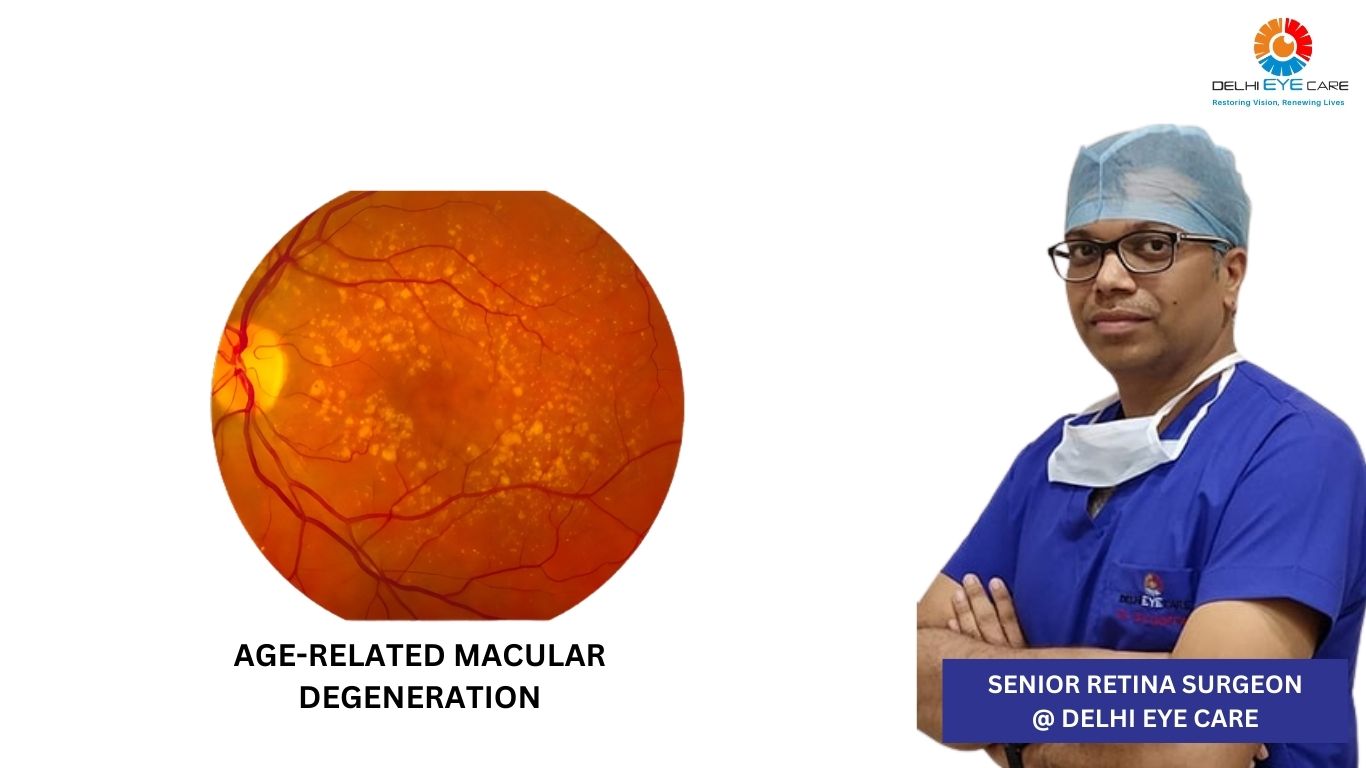
Blog Details
- Home
- Blog Details

What is Age-related macular degeneration (AMD)?
- December 16, 2024
Age-related macular degeneration (AMD) is a progressive eye condition that primarily affects older adults and is a leading cause of vision loss. The macula, located at the center of the retina, is responsible for sharp, central vision. AMD damages the macula, leading to a decline in central vision and making it difficult to perform everyday tasks like reading and recognizing faces.
Symptoms of Age-related Macular Degeneration (AMD):
1. Blurred or Distorted Vision: Individuals with AMD often experience a gradual blurring of central vision. Straight lines may appear distorted, and there may be difficulty in recognizing faces or fine details.
2. Dark or Empty Areas in Vision: AMD can create dark or empty areas in the central vision. This can make it challenging to see clearly and may result in the loss of the central field of vision.
3.Difficulty Seeing in Low Light: As the condition progresses, individuals may find it increasingly difficult to see in low-light conditions. This can impact activities such as driving at night.
4.Changes in Color Perception: Some people with AMD may notice changes in their ability to perceive colors accurately.
Types of Age-related Macular Degeneration:
1. Dry AMD: This is the more common form, accounting for about 80-90% of cases. It is characterized by the gradual breakdown of light-sensitive cells in the macula.
2. Wet AMD: Although less common, wet AMD is more severe. It occurs when abnormal blood vessels grow beneath the retina and leak blood and fluid, causing rapid damage to the macula.
Treatment Options for Age-related Macular Degeneration:
1. Anti-VEGF Injections: For wet AMD, anti-vascular endothelial growth factor (anti-VEGF) injections are often used to slow down the growth of abnormal blood vessels, reducing fluid leakage and preserving vision.
2. Photodynamic Therapy (PDT): This involves using a light-sensitive drug and a laser to destroy abnormal blood vessels.
3. Laser Therapy: In some cases, laser therapy may be employed to destroy abnormal blood vessels, but this is less common due to potential damage to the surrounding healthy tissue.
4. Nutritional Supplements: Studies have shown that certain nutritional supplements, including vitamins C and E, zinc, copper, and lutein, may help slow the progression of AMD in some cases.
5. Surgical Management: In certain select cases we need to fall back to surgical management especially in cases with massive sub-retinal bleeds.
It's important for individuals experiencing any changes in their vision to seek prompt medical attention. Regular eye exams are crucial, especially for those at higher risk due to age, family history, or other risk factors. Early detection and intervention can significantly improve the management of AMD and preserve vision to the greatest extent possible.
Why choose Delhi Eye Care for retina Treatment
When considering treatment options for Age-related Macular Degeneration (AMD) in Delhi, it's essential to choose the best eye hospital with experienced retina surgeons in Delhi, we are complete eye care hospitals specialize in retina surgery and offer state-of-the-art facilities for managing AMD.
During the visit to the doctor, he will give you eye drops in order to dilate your eyes. Then special tools are used to view the condition of the retina.


